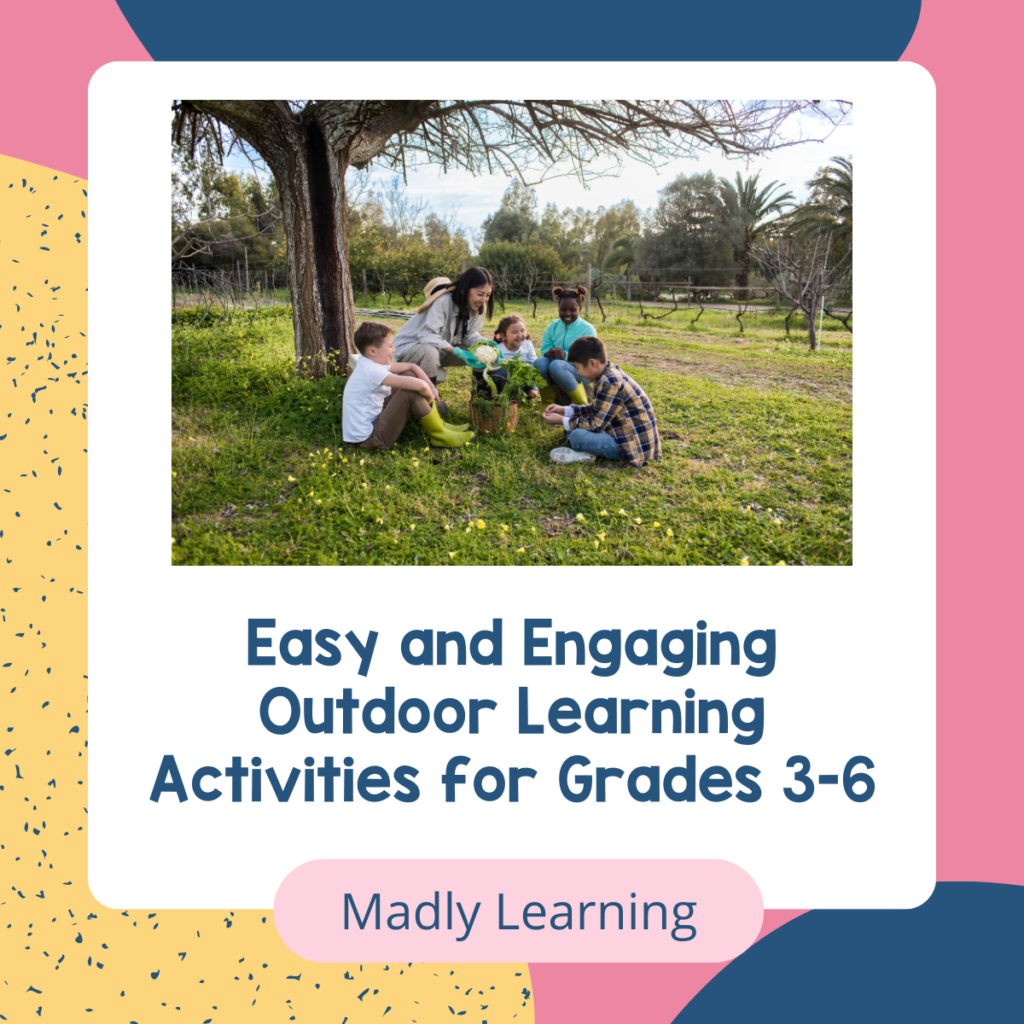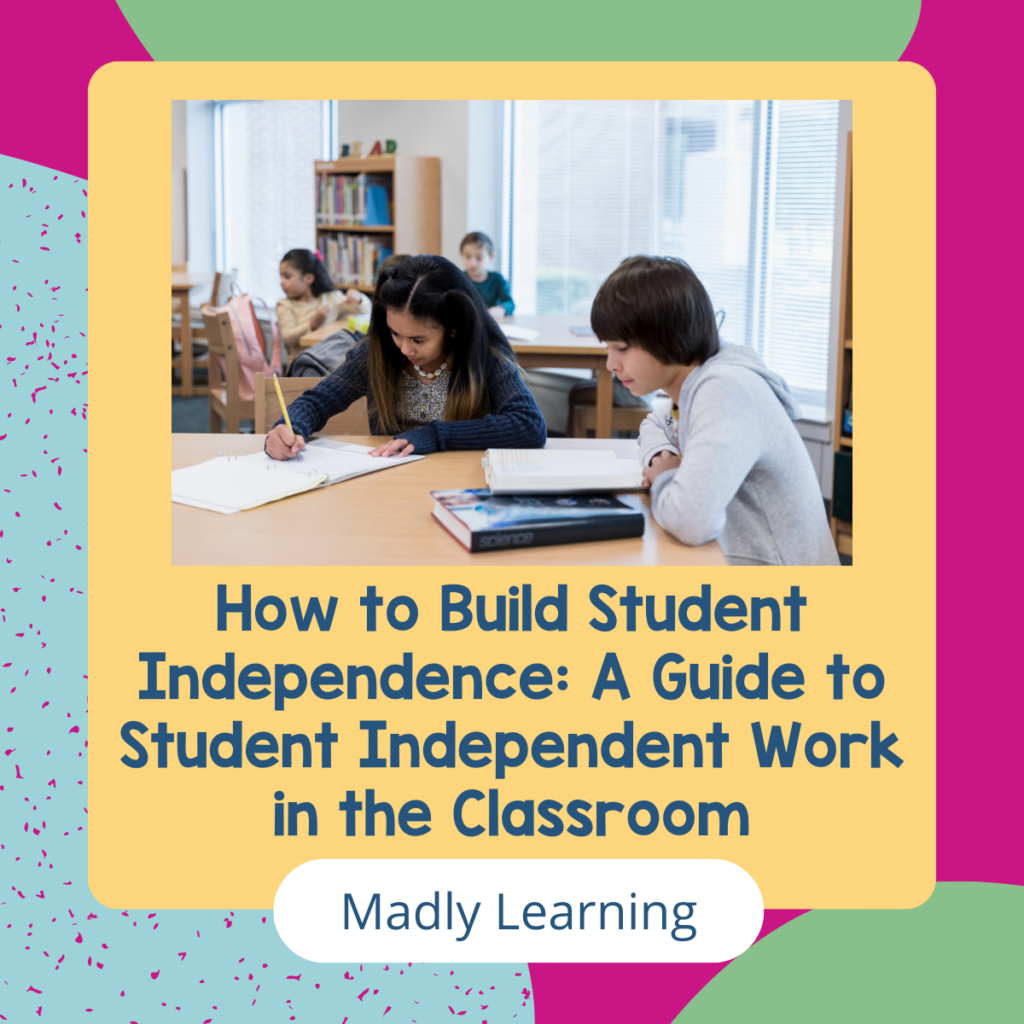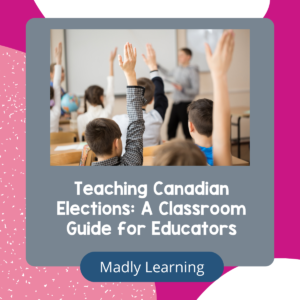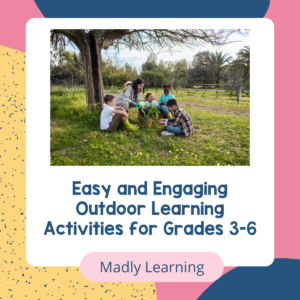As the weather warms up and your students get a little wiggly, outdoor learning becomes a classroom lifesaver. Sunshine, fresh air, and a change of scenery can do wonders for focus and engagement—especially in the spring. In this post, we’re sharing low-prep, high-impact outdoor learning activities you can use to take literacy, math, science, and social studies beyond the walls of your classroom. Each one promotes student independence, inquiry-based learning, and cross-curricular connections that align with the Ontario curriculum. Let’s take learning outside!

Why Outdoor Learning Activities Work
Outdoor learning isn’t just fun—it’s backed by research. Time outside supports mental well-being, boosts creativity, and helps students self-regulate. It also opens the door to hands-on, real-world exploration that’s perfect for inquiry-based teaching. Plus, moving lessons outdoors creates natural opportunities for collaboration, reflection, and sensory learning—making it ideal for spring when students crave movement and novelty.
Outdoor Learning Activities by Subject
Here are some easy ideas to try across different subjects. Each one can be adapted for Grades 3–6 with just a few materials and a clipboard!
 Language – Nature Poetry & Descriptive Writing
Language – Nature Poetry & Descriptive Writing
1. Sensory Poetry Walk
Have students head outside and write down everything they see, hear, smell, and feel. Then, using their notes, they can write a poem—haiku, acrostic, or free verse—celebrating nature or spring. Focus on using descriptive, figurative language.
2. Outdoor Story Starters
Choose a place outside and have students imagine what could happen there. They might see a squirrel and write from its point of view or make up a story about the tree that’s been growing there for 100 years. Students can write short stories using nature as their setting.
 Math – Measurement Walk & Pattern Hunts
Math – Measurement Walk & Pattern Hunts
1. Measurement Walk
Take math outdoors by challenging students to measure objects using standard or non-standard units. For example: How many steps is the soccer field? What’s the perimeter of the garden? Then compare and graph results back in class.
2. Pattern Hunt in Nature
Send students to search for patterns in leaves, flowers, rocks, or arrangements in the playground. Have them photograph or draw the patterns they find, then describe or label them using math vocabulary like symmetry, repeating units, or tessellations.
 Science – Scavenger Hunts & Micro Investigations
Science – Scavenger Hunts & Micro Investigations
1. Nature Scavenger Hunt
Give students a checklist of natural items to find (something smooth, rough, green, living, decaying, etc.). Afterwards, discuss how each item fits into the local ecosystem or food chain.
2. Soil and Plant Studies
Bring out magnifying glasses and dig into a small patch of soil. What do students notice? Are there insects, different textures, or evidence of decomposition? Students can sketch, classify, and describe their findings.
 Social Studies – Mapping & Local Connections
Social Studies – Mapping & Local Connections
1. Schoolyard Mapping
Ask students to draw a map of the schoolyard or park area, including natural and human-made features. Label places where land is used for different purposes (e.g., sports, rest, learning, gardens).
2. Community Connections Walk
Take a walk around the block or school grounds and talk about how people interact with the space. Are there places to play, gather, or grow food? What rules are in place (signs, fences)? This helps students understand urban planning, land use, and community structure.
Tips for Successful Outdoor Learning Activities
- Set clear expectations for behaviour and noise levels
- Bring clipboards or whiteboards to create portable workspaces
- Prep indoor “grab and go” bins with pencils, timers, magnifying glasses, etc.
- Use apps like Google Lens or Merlin Bird ID for quick investigations
Make Outdoor Learning a Habit
Outdoor learning doesn’t need to be a once-a-year treat. Even 15 minutes of movement or reflection outside can reset your class and enrich your instruction. Whether it’s a nature journal session, group reading circle, or science sketching trip, bringing learning outdoors helps students engage more deeply.
Looking for more inquiry-based ideas that support student independence and outdoor learning?










